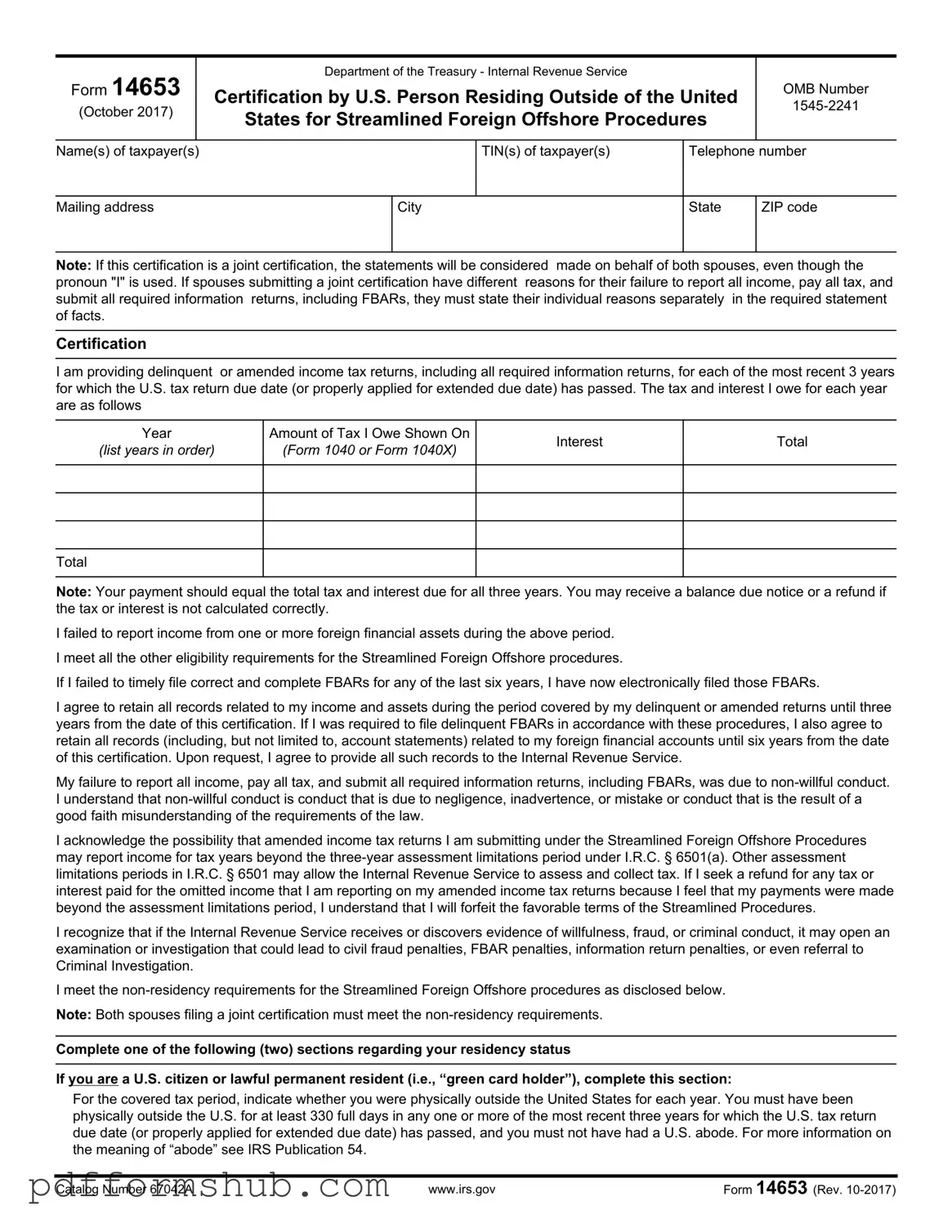Fill in Your 14653 Form
Form 14653 is a certification document used by U.S. persons residing outside of the United States to participate in the Streamlined Foreign Offshore Procedures. This form allows individuals to rectify their tax filing status and address any unreported income or tax obligations. If you need to fill out this form, please click the button below to get started.
Customize Form

Fill in Your 14653 Form
Customize Form

Customize Form
or
Free PDF Form
Short deadline? Complete this form now
Complete 14653 online without printing hassles.